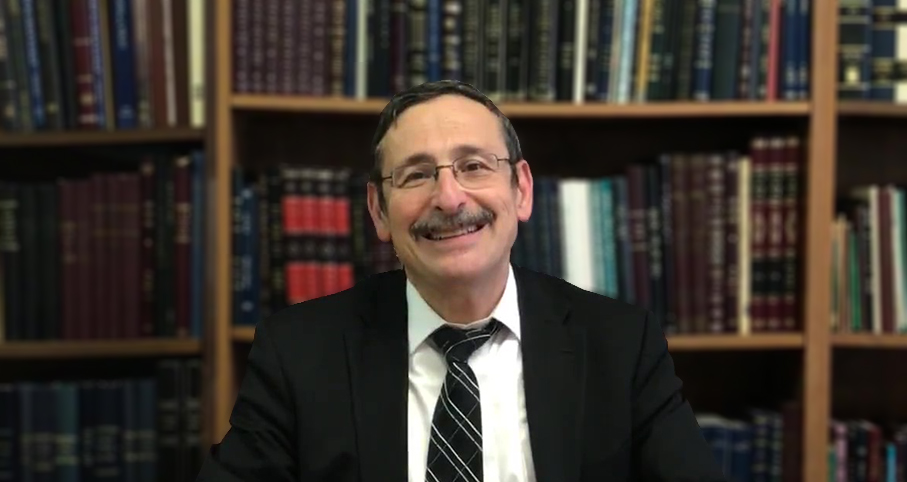Beit Midrash
- Sections
- Chemdat Yamim
- P'ninat Mishpat
[Reuven possesses a contract that obligates Shimon to pay him a certain amount of money and the place of the payment is to be where Reuven lives (Shimon lives in a different town). The two need to adjudicate about the payment, and Shimon wants to do so in his city, based on the standard rule that the place of adjudication follows the defendant (Rama, Choshen Mishpat 14). Reuven says that since the place of payment is specially designated to follow his place, so too this should require Shimon to also adjudicate there.]
One case in which the defendant must adjudicate in the beit din which the plaintiff chooses is when that beit din is particularly distinguished, even if that place is also more convenient for the plaintiff than for the defendant. The reason is that "the borrower is a slave to the lender." If so, it is strange that the plaintiff usually follows the defendant.
Apparently, we follow the place of the defendant when the plaintiff does not have witnesses or apparent proof that his claim has merit. We find this basic distinction regarding going to the distinguished beit din, as the Shulchan Aruch says that he cannot force the defendant to go with a hollow claim. In this case, when there is a document which ostensibly justifies Reuven’s claim, he is considered to have strong basis for his claim, and the case should be held where the plaintiff demands.
Another factor is the fact that the contract says that the payment will be in the location of the receiver of the payment. We find that this type of statement impacts on related halachot. Specifically, the gemara (Ketubot 110b) says that if a contract mentions Bavel, we assume the payment is to be done with Babylonian coins. In other words, it is considered that he accepted this arrangement upon himself. It would seem that in our case if he promised that he would make payment in Reuven’s place, certainly he was willing to adjudicate there. [In days of credit cards and bank transfers, it is unlikely this comparison would have been made.]
There are many opinions that not only can a lender force a borrower to adjudicate in a distinguished beit din, but any plaintiff can, because he would not waste his money to sue if there is nothing to his claim. However, the plaintiff cannot make the defendant adjudicate in the plaintiff’s location because there he does not have to waste his money to go to beit din. However, in the case of an actual loan, the idea that the borrower is considered like the "lender’s slave" applies even when the other logic does not apply. This should justify the case being heard in the apparent lender’s location.
Another reason to not apply here the Rama’s rule is that the minhag was that whenever there was a local beit din, one could never make someone go elsewhere even to a better beit din. However, in our case it seems clear that the defendant would have to follow the plaintiff to his local beit din.

P'ninat Mishpat (802)
Various Rabbis
307 - Payment of Din Torah Award by a Litigant’s Orphans
308 - When the Defendant Goes to the Plaintiff’s Place
309 - Bank Notes Lost by Paid Messenger
Load More

P'ninat Mishpat: Rental of an Apartment that Was Not Quite Ready – part II
based on ruling 82031 of the Eretz Hemdah-Gazit Rabbinical Courts
Beit Din Eretz Hemda - Gazit | Iyar 5784

P'ninat Mishpat: End of Tenure of Development Company – part II
based on ruling 77097 of the Eretz Hemdah-Gazit Rabbinical Courts
Beit Din Eretz Hemda - Gazit | Tammuz 5785

P'ninat Mishpat: Unsuccessful Transfer of Yeshiva – part II
based on ruling 82138 of the Eretz Hemdah-Gazit Rabbinical Courts
Beit Din Eretz Hemda - Gazit | Adar 5784

P'ninat Mishpat: Benefit from Unsolicited Efforts of the Plaintiff
based on appeal of ruling 82138 of the Eretz Hemdah-Gazit Rabbinical Courts
Beit Din Eretz Hemda - Gazit | Av 5785

Various Rabbis
Various Rabbis including those of of Yeshivat Bet El, such as Rabbi Chaim Katz, Rabbi Binyamin Bamberger and Rabbi Yitzchak Greenblat and others.

Moreshet Shaul: A Crown and its Scepter – part II
Based on Siach Shaul, Pirkei Machshava V’Hadracha p. 294-5
Av 5785

Connection to the Present and the Past
Iyar 21 5775

Buying Looted Seforim from the Slovakians
Iyar 21 5775


























